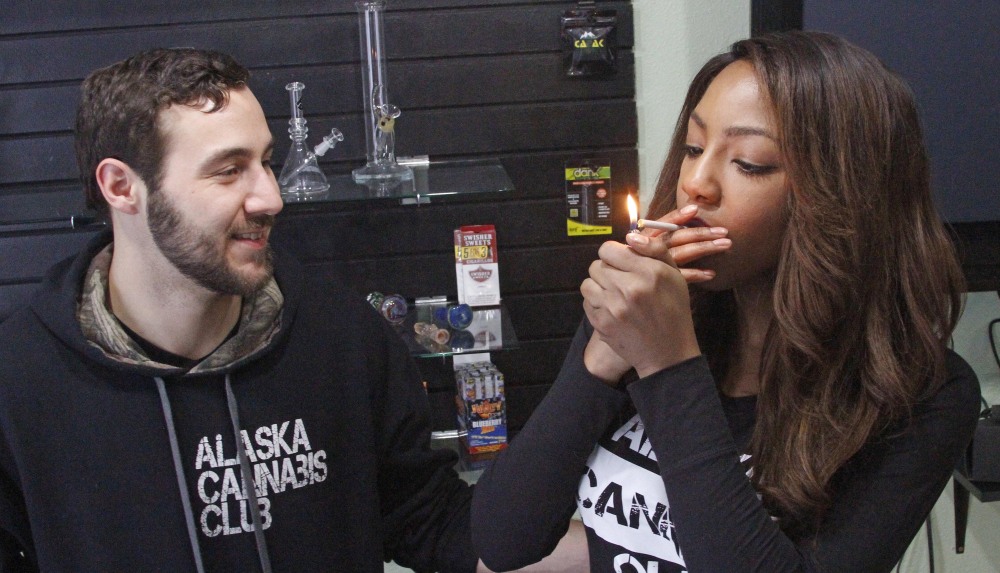JUNEAU, Alaska — Alaska on Tuesday became the third U.S. state to legalize the recreational use of marijuana for adults, but it was a subdued milestone.
Unlike in Colorado and Washington state, there were no street parties and public smoking displays in Alaska’s biggest cities. But backers of legal pot said the mild reaction was fitting because they are aiming to promote responsible consumption of marijuana as they work with lawmakers during the next few months in preparing its sale.
“We wish people would just celebrate in a little less public of a fashion,” said Bruce Schulte, an advocate for legalization. “We want to see this industry thrive in a responsible, regulated fashion, and part of that is responsible consumption.”
But when the public voted last November to legalize marijuana use by adults in private places, voters left many of the details to lawmakers and regulators to sort out. That has left much confusion.
The initiative bans smoking in public, but it doesn’t define what that means, and lawmakers left the question to the alcohol regulatory board. “The implementation of Ballot Measure 2 has provided us with a new set of freedoms, but like anything else, there are limits on those freedoms,” said Tim Hinterberger, the chairman of the Campaign to Regulate Marijuana, pro-pot group, said Tuesday morning.
Despite the statewide directive, Alaska still allows different communities to adopt different standards of what smoking in public means to them. In Anchorage, for instance, Police Chief Mark Mew warned people against smoking on their porches if they live near a park. But in North Pole, smoking outdoors on private property will be OK as long as it doesn’t create a nuisance.
As of Tuesday, adult Alaskans can not only keep and use pot, they can transport, grow it and give it away. A second phase, creating a regulated and taxed marijuana market, won’t start until 2016 at the earliest.
Meanwhile, Alaska Native leaders worry that legalization will bring new temptations to communities already confronting high rates of substance abuse.
“When they start depending on smoking marijuana, I don’t know how far they’d go to get the funds they need to support it, to support themselves,” said Edward Nick, council member in Manokotak, a small Yup’ik Eskimo village..
Send questions/comments to the editors.



Success. Please wait for the page to reload. If the page does not reload within 5 seconds, please refresh the page.
Enter your email and password to access comments.
Hi, to comment on stories you must . This profile is in addition to your subscription and website login.
Already have a commenting profile? .
Invalid username/password.
Please check your email to confirm and complete your registration.
Only subscribers are eligible to post comments. Please subscribe or login first for digital access. Here’s why.
Use the form below to reset your password. When you've submitted your account email, we will send an email with a reset code.